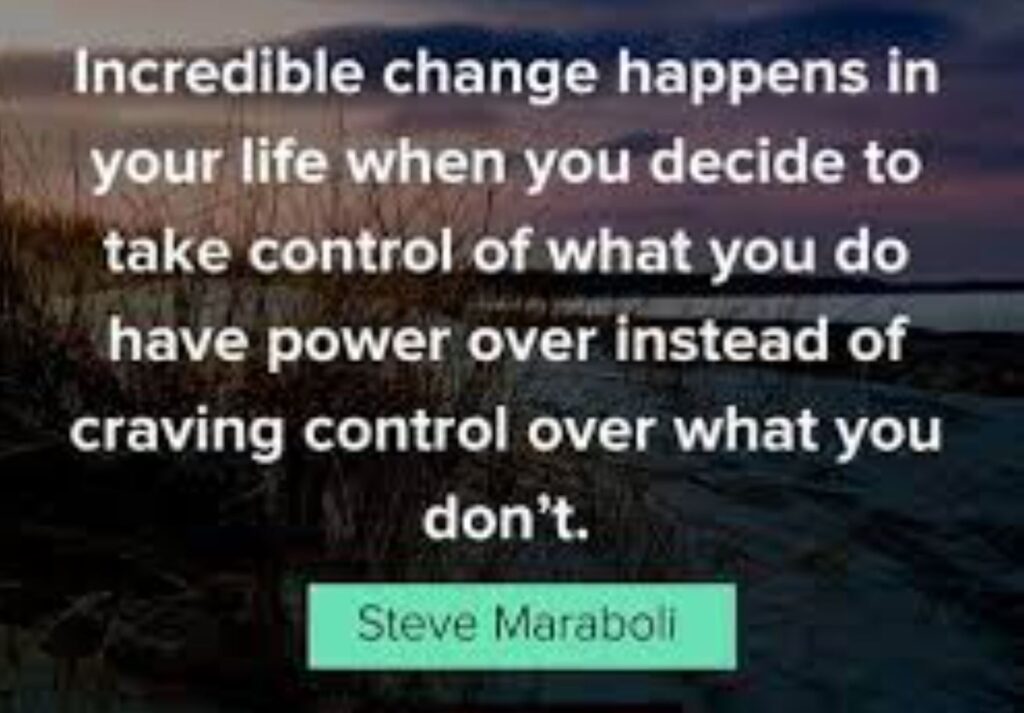There seems to be some kind of unfair perception around living for yourself. Many people feel like this is very egoistical and that such a lifestyle implies neglecting others. However, this couldn’t be farther from the truth. The fact remains that you should put yourself first if you want to make others happy. In this sense, living for yourself isn’t egotistical. Quite the contrary, it’s a healthy and crucial practice. Nevertheless, it’s not always easy to know how to start putting yourself first.
Take back control of your life by living for yourself. Here are ways that will start an immediate change for you and give you back agency of your world and lead a happy life.
1. Write it All Down
First and foremost, before you can make fundamental changes in your life, you should start by putting it all on paper. This exercise will make you think long and hard about what you want from life to make this more concrete. Hence, to succeed, you first need to ask yourself what makes you happy in life, what you want to achieve, and what you want to change. You also have to think about the aspects of your life that you like and those you don’t particularly like. Then, you can just write it all down. You’ll find that this can help sort out your thoughts. It will also ensure that you have an excellent overview.
Another thing that you should remember in this department is that you can just write freely. Therefore, resist the urge to limit yourself by negative thoughts like “I can’t do this.” When writing down your feelings, thoughts, and aspirations, the sky truly is the limit.
Once you’re done with this exercise, you’ll immediately notice that making specific lifestyle changes will be significantly easier. Hence, this first tip is the first step to living for yourself. Specifically, it will clarify what steps you need to take to prioritize yourself and your happiness.
2. Quality Time with yourself.
Many people seem to think that quality time intrinsically requires someone else’s company to strengthen your relationship with that person. Yet, this view has no regard at all for the benefits that quality time with yourself can bring. So it’s imperative to make time for a peaceful evening by yourself every once in a while.

Don’t forget meditation is also a great and healthy way to spend time with yourself. You can check out our free guided meditation app, Declutter The Mind, and start to sit with your mind and take time out for yourself.
3. Stop Thinking About What Others Might Think
Now, this next tip might just be the most pertinent one. If you want to truly start living for yourself and not for others, you have to stop thinking about what others might think so much. This also includes breaking away from the traditional vision of what’s socially acceptable. It might be challenging to put this motto into practice, but you’ll find that you will feel free once you do.
So, wear that outfit. Eat an extra plate of your favorite meal. Speak your mind. You should do what you desire without constantly looking for others’ approval or advice. It’s honestly the only way to live your life exactly like you want to.

4. Compliment Yourself Regularly
On a related note, it’s also recommended to give yourself compliments regularly. Most people live their lives constantly seeking the appraisal of others. However, your feelings of self-worth are simply too essential to let them depend on the actions and words of others. So, tell yourself that extensively whenever you feel like you look good. The same goes for when you have done something great or reached certain accomplishments. In short, you should become your own biggest fan and supporter. Particularly, if you celebrate your successes and positive qualities, it will be easier to convince yourself that you’re truly a great person with a lot to offer. In turn, your feelings of self-worth will significantly increase. Positive self talk is powerful.
5. Learn How to Say No
“No” is a word that comes with a negative connotation for many people worldwide. However, these people don’t realize how empowering saying no can be. It’s not egocentric to say no when someone wants you to do something for them. But, of course, it can also be empowering to help others. However, you shouldn’t bend over backward to please others if it will cost you too much time and effort.
Even though it’s not always easy to let others down, you must remember that you need plenty of time and energy to put into yourself. And you simply won’t be able to give yourself what you need if you give everything you have to others. Remember, the key to living for yourself is to realize that it’s not egoistical to put yourself first!
6. Don’t Play the Victim
Moreover, many people aren’t happy with the lives they lead, and that’s because they don’t take matters into their own hands. They complain about everything that goes wrong in their lives, and as a coping mechanism, they start playing the victim. They do so by living according to others’ expectations.
However, the key to living for yourself is to remember that you have a lot of influence on what happens in your life. By knowing yourself, by knowing your wishes and desires, you can make choices that impact your life for the better. Such choices can provide you with energy and satisfaction. Also, it can help you with your personal growth. So, don’t live your life out of fear and don’t play the victim. Instead, take ownership of your actions and strive to live your life!
7. Take Care of Yourself Properly
Furthermore, it’s also extremely important to take care of yourself properly in the way you truly deserve. You should do so both in your personal life and in your professional life to the extent possible. If you don’t know where to start, it’s always a wise idea to live according to “a healthy mind in a healthy body.” So, start exercising regularly and healthily adapt your daily diet. For example, don’t skip meals, eat on steady moments, avoid junk food and unhealthy snacks, and make healthy choices. This will provide you with the energy you need to get through the day. However, it will also help you build confidence and a positive mindset. Those are precisely the building blocks for living your own life!
8. Don’t Compare Yourself to Others
One of life’s most useful pieces of wisdom is that you should stop comparing yourself to others. If you keep comparing your appearance to that of others, and if you hold your accomplishments to the standard of the accomplishments of others, you will be distracted. Concretely, you will be distracted from your path in life. Even more so, you will be so occupied by others and their choices that you won’t be able to determine how you want to handle things.
So, don’t compare yourself to others. Instead, only use yourself as a standard and strive to become the best version of yourself.
A very useful tip in this department is to refrain from using social media too much. And even if you’re a big fan of using social media, you should keep in mind that what you see isn’t necessarily real. People generally tend to show their best side on social media, and they also only show their most joyous moments.
Hence, comparing yourself to others never is a good idea, but it’s especially detrimental to compare yourself to the version of others on social media. This will cause feelings of inferiority, but it also will keep you from living your best life. So again, the importance of setting your own course can’t be stressed enough. It’s the only proven tactic for taking matters into your own hands and finding out what you want to achieve in life.
9. Set Realistic Goals for Yourself
Finally, the last tip to consider is that you should set goals for yourself. But, nevertheless, you can’t go overboard with this. Namely, while setting goals is beneficial, you will do more damage than good if your goals aren’t realistic. Instead, try setting realistic goals for yourself. To a greater extent, it’s recommended that you start small to achieve small successes. Then, you can make your goals slightly bigger each time. Then, in only a slight matter of time, you’ll notice that you can achieve great things if you put your mind to it!
Working Toward Goals
Focus on your strengths.
Try to fix things.
Focus on the future, not past hurts.
Focus on life, not illness.
Writing down your main goals may help you heal. You can set short-term, achievable goals or longer-term ones. Take small steps toward them throughout a week or month. Celebrate accomplishments. Even little ambitions indicate hope and accomplishment.
Creating recovery goals without knowing what you want is hard. Take stock of your passions and drives. Think about your life goals and what you want to do more of. Believing in your goals boosts your chances of success.
After creating goals, decide what you need to achieve them. Share your motivation and how this aim will alter your life. Consider your abilities and attributes that will help you succeed. Include support systems and resources to help you progress. Finally, focus on the goal, not your issues. Open your mind and expect challenges. Focusing on bad memories hinders rehabilitation.
A notebook or scrapbook with images and clippings will keep you organized. Keep track of your goals and what you’ve done in a notebook or scrapbook. Include new goals when they appear. Setting objectives will motivate you to recover and stay healthy.
Look After Yourself
Rehabilitation requires self-care. Recovery people learn that helping others helps their physical, spiritual, and emotional health. Comprehensive self-care improves health.
A depression, anxiety, bipolar disorder, and PTSD evaluation tool can help you recover. Mental health tests are at screening.mhanational.org.
Some self-care tips:
Get enough sleep, eat healthy, exercise, and avoid drugs and alcohol. Manage stress and get checked.
Stay clean. For social, physiological, and psychological reasons, excellent hygiene reduces illness and improves self- and other-perception.
See friends to connect. Join a support group to make friends.
Do something you enjoy daily. Dancing, reading, gardening, watching a favorite show, and painting are examples.
Relax with meditation, yoga, a massage, a bath, or a woodland walk.
Improve Your Relationships
Pleasure, spirit, and leisure boost resilience and health. Connecting with yourself, others, and your community and creating delight and satisfaction brings joy, spirit, and relaxation. Use these four C’s to stretch your comfort level and explore new things.
Communicate with oneself
Regular self-checks matter. If not, you may not notice changes or out-of-control situations. Self-checks help you assess healing. Change your action plan step or try fresh coping methods.
Low times make leaving difficult. Understand your mental health condition to recognize your struggles are not your fault. At times of despair, listing your achievements can assist.
Writing about your experiences may help. A journal helps you discover yourself. You should be honest and relaxed in your notepad. This will disclose your actual feelings and safely release stress.
Advocating and sharing your experience is another method to connect with yourself. Extensive research has examined storytelling therapy. Sharing recovery stories in writing or speaking is vital. You can inspire people by reading their thoughts and experiences.
Share With Others
Positive, compassionate people you trust can reduce stress, improve mood, and raise well-being. Family, close friends, support group members, and drop-in center peer counselors may help. Many places offer free mental health patient-run warmlines for peer support and chat.
Research demonstrates social connection benefits:
Happiness rose. A fascinating study found that good relationships distinguished between happy and unhappy people.
Better health. A recent study connected loneliness to high blood pressure in seniors.
Longer life. A 9-year study indicated that strong social and communal bonds reduced mortality by 2–3 times.
Connect when: Concrete help, like a friend picking up your kids from school;
Receiving “I’m really sorry you’re having such a tough time” as emotional support;
Perspective, like knowing moody teens grow up;
Schedule weekly dates with your spouse;
Hearing others like train timetables is encouraging.
Is your help enough? Any relatives or friends who:
Someone who makes you feel comfortable can help you solve problems, appreciate you, and take your worries seriously.
Join Your Community
Connecting to a broad community reduces stress. Think about interests. You can expand your social circle by joining a community group with comparable interests. Many communities have biking, hiking, and walking groups. Have you always wanted to learn a language? Classes and local groups exist. Local parenting, health, and sick loved one support groups may also help.
Join a needy community organization to volunteer. Making volunteering work and not stress you out:
Finding the right match. You enjoy what kind of job? Consider skills, interests, and availability. Reading this would be easier with a list. Do you like reading, writing, building, fixing, or organizing? Do you tutor or coach difficult pupils in a speciality? Are pollution or homelessness your primary concerns? Prefer gardening or office work? Do you speak another language? Must you remain home and volunteer? No matter your status or interests, you may volunteer to enhance your town. Socializing through volunteering improves mental wellness.
Make it count. If you want your volunteer time to matter, inquire how the organization employs volunteers. Ask volunteers what they do, where, and when, and whether employees can help.
Find link. Find an appropriate volunteer position at your local volunteer center. Search Yellow Pages for “Volunteer Clearinghouse” or “Volunteer Center,” or visit volunteermatch.org. Local Mental Health America affiliates may require volunteers. Request a volunteer coordinator reference from your city or county information line.
Happy and content
Mental illness drains emotionally, physically, and mentally. Research shows that good moods promote stress management, problem-solving, flexibility, and sickness resistance. Living healthily with or without mental illness involves joy and fulfillment for emotional, physical, and mental health.
Research shows that pain, muscle tension, heart and lung health, and anxiety are reduced by laughing.
Positive emotions reduce stress and boost emotional strength.
Leisure activities bring satisfaction, distraction, and more. In one study, leisure-lovers were less likely to develop Alzheimer’s or dementia.
Read overcoming Wishful Thinking
Lifestyle and relaxation tips:
Do a childhood favorite. Try monkey bars, sprinklers, or finger paints.
Always wanted? Do it. Start knitting, make a tree house, or prepare a soufflé. Take a class or join a local organization if unsure.
Watch or hear comedy. Podcast, video, or website. Try the comics section for a classic laugh.
Therapeutic massage. Massage lowers muscle stress, promotes immunity, and stimulates natural painkillers. Relaxation and anxiety reduction are further benefits.
A nature break. Beautiful lake, blue sky, lush vegetation. Walking or viewing nature calms nerves and decreases stress. One study found nature-view workers happier than those with similar jobs but no view.
Meditation helps anxiety, depression, cancer, chronic pain, asthma, heart disease, and high blood pressure while bringing calm.
Start with a few minutes daily. You can work 10–30 minutes later. Meditation books, CDs, internet, and classes abound. Try these alternatives. Relax and try again if one fails.
Types of Meditation: Deep breathing. Sit or lie down comfortably. Put hands on stomach. Breathe slowly and count four. Your stomach rises. Hold breath. Slowly exhale through pursed lips while counting to four to control breathing. The stomach lowers slowly. Repeat often.
Mindfulness Meditation. Think about breathing. Watch everything without judgment. If your attention drifts to your to-do list, breathe.
Visualization. Close your eyes and imagine a peaceful forest. Use senses: Hear the leaves crunch, smell the damp soil, feel the air.
Mantra practice. Sit quietly and choose a soothing word, phrase, or sound. Say the mantra loudly or quietly. Body relaxes with repetition, say experts. Focus on thought.
Start Now
It’s not easy to give yourself permission to take back control, but if you do, you’ll start to notice how much more energy you have for others and how much more of yourself you can give to others when you finally begin to take care of yourself first.
Read No Perfect Moment; Make Every Moment Perfect
Credits
At Positive Psychology and Educational Consult, we are ready to help you to navigate your life. Contact us today. We are available online 24/7.
Phone: +2348034105253. Email: positivepsychologyorgng@gmail.com twitter: @positiv92592869. facebook: positive.psych.12
